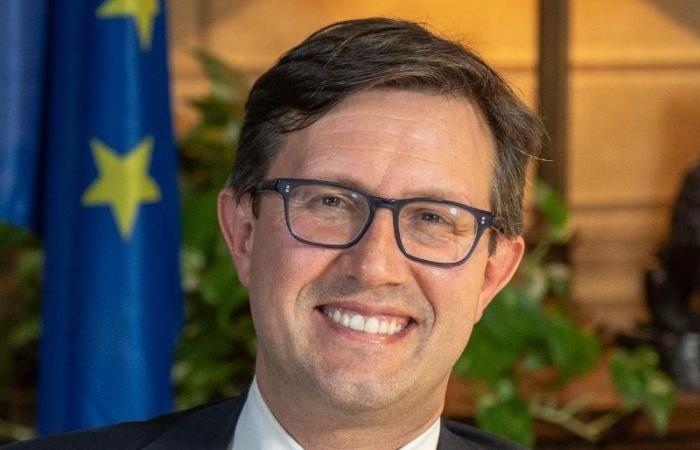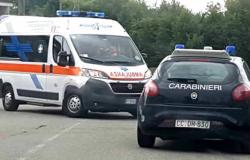Florence, 2 July 2024 – Strasbourg, Brussels… Will you miss Florence, one of the most beautiful and famous cities in the world?
“I will miss the relationship I had as mayor,” replies Dario Nardella, two terms as mayor of the Democratic Party in the Tuscan capital. “A totalizing relationship. But my base will remain here. And indeed I will invest a lot of energy in the relationship between Florence and Europe.”
Did you expect 120 thousand preferences?
“I was hoping for a good result but not like this, in a very difficult constituency with candidates like Zingaretti, Tarquinio, Ricci, Schlein herself. We have reaped what we have sown in these years”.
How much does he owe to himself and how much to those who supported and promoted him in the Democratic Party?
“I have always tried to rely on my abilities. Of course the party was very important and my city first of all.”
Dario Nardella
Ten years as mayor of Florence: three successes.
“First of all the trams and the unblocking of other major works (Tav stadium), then the social objectives (introduction of minimum wage and battle over housing), finally the regeneration of black holes (Manifattura Tabacchi, Belfiore, Osteria, Lupi di Toscana and the historic buildings in the centre)”.
The three disappointments and the most bitter one?
“The most painful is the story of superintendent Pereira, even though now with Fuortes we have put the Teatro del Maggio back on the right track. A second disappointment is not having completed the project of the great Florence. The last disappointment is the legal appeal of Fiorentina, when we had reached an agreement with the convention to let the team play during the work. We are the only ones in Italy to have unblocked the problem of the stadium by finding economic resources on our own. On all these objectives, I am confident that Sara Funaro will do an excellent job to bring them to completion”.
How much does the missed third term for the mayors of the largest cities sting you?
“On a personal level it doesn’t burn me. I’ve finished a long cycle as an administrator. On a national political level the issue is open but we must not divide ourselves in the Democratic Party because the priority now is to defeat the right on a reform that is a two-headed monster: differentiated autonomy and the anti-Quirinale premiership”.
In a medium-sized but international city like Florence, what are the major difficulties for a mayor?
“Reconciling the daily management of the city on small things with the large works and events to be carried out”.
One of the biggest problems is the distance perceived by citizens from European institutions. How can this problem be solved, also in light of your experience as president of Eurocities, which brings together European mayors?
“With serious and constant work in the relationship with civil society, the world of production and work, administrators. Then we must speak a clear and simple language to citizens. When I tell them, for example, that free nursery schools in Tuscany are guaranteed by the European social fund, then they better understand the usefulness and importance of Europe”.
And what Europe will he fight for?
“For a stronger and more united Europe with a real foreign policy and more attentive to citizens and businesses, where politics has more responsibility and role than technology. My dream is to carry on David Sassoli’s battles”.
You were elected in the Central Italy constituency which risks being crushed between the productive North and the struggling South: how to intervene?
“During the election campaign I made a commitment to promote a summit every year on the macro-region of central Italy, which is rarely discussed because all the attention is focused on the North and the South. My goal is to unite the economic, social and institutional actors of the 4 Regions to have a real agenda of priorities, from infrastructure to urban and territorial policies. Then in this area we also have the issue of public health to defend, a national issue”.
What is the main deficit to be filled?
“That of infrastructure. The real bridge that Italy needs is not the one over Salvini’s Strait, but central Italy, without which North and South would not talk to each other.”
Tuscany also suffers from strong gaps: what can Europe do?
“Tuscany needs homogeneous growth. The creation of infrastructures that better integrate the provinces will be crucial in the coming years, as well as a great commitment to technological innovation and the internationalization of businesses.”
The advance of the right, what scenario do you imagine for the next few years?
“The outcome of the runoff in France on July 7 will be important. I do not take a landslide victory of the right for granted, also because an unprecedented agreement between the Popular Front of the Left and Macron’s center could block this advance and would represent an interesting prospect at a European level. The real answer to the right is to unite progressive and democratic forces throughout Europe with a new political project and the PD, which is the first delegation, can promote and push this process”.
Staying with the Democratic Party, what are the prospects: as a reformist, do you wish Schlein a long life?
“I didn’t vote for Elly Schlein at the congress, but I immediately worked to help the secretary. I have never tolerated our party’s old habit of weakening the leadership from the day after the congress. This is also why the reformists of the Democratic Party can bring added value to Elly Schlein’s work, further expanding our party’s consensus compared to the already positive European vote”.
You have always preferred a decisive but not aggressive attitude in politics: how can the barbarism of recent times be contained?
“Building a new generation of political leaders and administrators. I will commit myself as an MEP for a political school on European issues for young administrators that will have its headquarters in Florence but will also operate in other regions. One of the reasons for the increase in abstention is linked to this barbarism which in turn also derives from a vertical decline in the quality of political personnel”.
Tuscany and Florence have seen the centre-left hold firm in the recent elections: did you expect that? Is it enough to not fear a setback in the 2025 regional elections?
“On the eve of the vote we had some fears linked above all to the aggressive attitude of the government and the right-wing parties. The result was excellent, thanks to the teamwork of candidates and party. This result is the necessary but not sufficient condition to win the next regional elections. It will be important to focus on preparing an electoral campaign that relaunches the good work done so far in Tuscany”.






